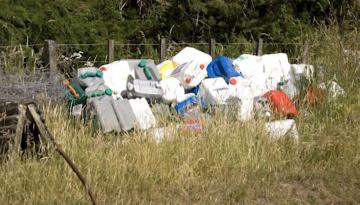
A new project seeking sustainable solutions to the problem of agricultural plastics has received a funding boost from the Government.
Rural recycling programme Agrecovery, a not-for-profit charitable trust, on Tuesday said it had received $178,200 towards its total budget of $196,346 for a project aiming to give agricultural plastics an "end-of-life makeover".
Agrecovery will work with industry associations, other recycling schemes, including Plasback, and the rural community to enhance product stewardship outcomes for farm plastics, the trust's commercial manager Richard Carroll said.
The funding comes after the Government earlier this year announced new rules making it compulsory for all manufacturers of agrichemicals and farm plastics sold in the country to be part of a recycling scheme.
The rules put the onus on the manufacturers, not the consumers, to ensure their products can be recycled or disposed of safely.
Carroll said the project would focus on agricultural plastics such as the bags used for fertiliser, seed and feed, as well as netting, silage wrap and twine.
"The project will bolster existing recycling services for farmers and growers, like the ones we provide for agrichemicals as well as those provided by Plasback – for silage and bale wrap," he said.
"Supporting farmers to preserve the environment by offering alternatives to the harmful disposal practices of burning, burying and stockpiling of waste is vital for the future of New Zealand."
According to research developed as part of the New Zealand Rural Waste Minimisation Project, farms on average produce nearly 10 tonnes of non-natural rural waste each year.
The research also showed that because of "limited service options available to farmers and growers" burning, burial and bulk storage were the main methods used for managing waste.


